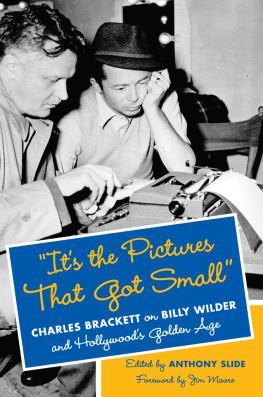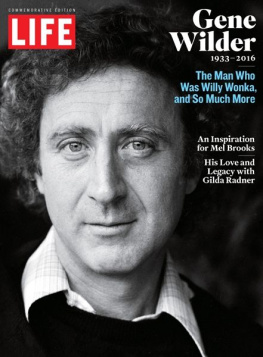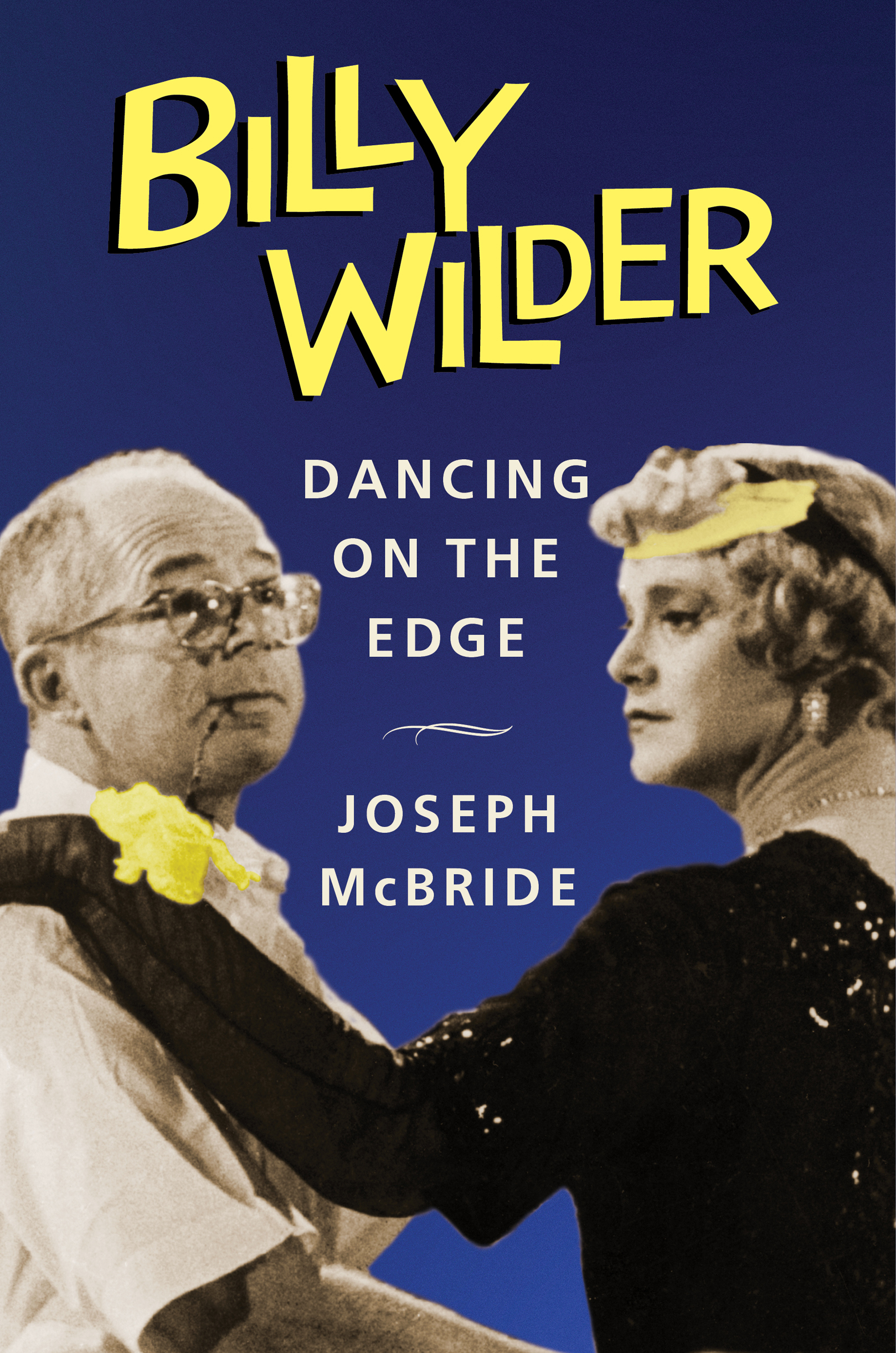Contents
Guide
Pagebreaks of the print version
BILLY WILDER
FILM AND CULTURE
FILM AND CULTURE
A series of Columbia University Press
Edited by John Belton
For a complete list of titles, see .
ALSO BY JOSEPH MCBRIDE
Frankly: Unmasking Frank Capra
How Did Lubitsch Do It?
Two Cheers for Hollywood: Joseph McBride on Movies
The Broken Places: A Memoir
Hawks on Hawks
Into the Nightmare: My Search for the Killers of President John F. Kennedy and Officer J. D. Tippit
Steven Spielberg: A Biography
Writing in Pictures: Screenwriting Made (Mostly) Painless
What Ever Happened to Orson Welles?: A Portrait of an Independent Career
Frank Capra: The Catastrophe of Success
Searching for John Ford
The Book of Movie Lists: An Offbeat, Provocative Collection of the Best and Worst of Everything in Movies
High and Inside: An A-to-Z Guide to the Language of Baseball
Orson Welles
Filmmakers on Filmmaking: The American Film Institute Seminars on Motion Pictures and Television, Vols. 1 and 2 (editor)
Orson Welles: Actor and Director
Kirk Douglas
John Ford (with Michael Wilmington)
Focus on Howard Hawks (editor)
Persistence of Vision: A Collection of Film Criticism (editor)

BILLY WILDER
DANCING ON THE EDGE
JOSEPH MCBRIDE
COLUMBIA UNIVERSITY PRESS
NEW YORK

Columbia University Press
Publishers Since 1893
New YorkChichester, West Sussex
cup.columbia.edu
Copyright 2021 Joseph McBride
All rights reserved
E-ISBN 978-0-231-55411-4 (ebook)
Library of Congress Cataloging-in-Publication Data
Names: McBride, Joseph, 1947 author.
Title: Billy Wilder : Dancing on the edge / Joseph McBride.
Description: New York : Columbia University Press, [2021] | Includes bibliographical references, filmography, and index.
Identifiers: LCCN 2021004923 (print) | LCCN 2021004924 (ebook) | ISBN 9780231201469 (hardback)
Subjects: LCSH: Wilder, Billy, 19062002. | Motion picture producers and directorsUnited StatesBiography. | AustriansUnited StatesBiography. | JewsUnited StatesBiography. | Motion picturesUnited StatesHistory20th century.
Classification: LCC PN1998.3.W56 M33 2021 (print) | LCC PN1998.3.W56 (ebook) | DDC 791.4302/32092 [B]dc23
LC record available at https://lccn.loc.gov/2021004923
LC ebook record available at https://lccn.loc.gov/2021004924
A Columbia University Press E-book.
CUP would be pleased to hear about your reading experience with this e-book at .
Cover and book design: Lisa Hamm
Cover image: Billy Wilder rehearsing a tango with Jack Lemmon as Daphne in the cross-dressing comedy Some Like It Hot (1959). United Artists/Photofest
Frontispiece: Billy Wilder in a studio publicity photo from the 1950s.
Do you remember my telling you earlier about that rooming house I lived in when I first was trying to get into the movies in Berlin? Well, next to my room was the can, and in it was a toilet that was on the blink. The water kept running all night long. I would lie there and listen to it, and since I was young and romantic, Id imagine it was a beautiful waterfalljust to get my mind off the monotony of it and the thought of its being a can. Now we dissolve to 25 years later and I am finally rich enough to take a cure at Badgastein [now Bad Gastein] , the Austrian spa, where there is the most beautiful waterfall in the whole world. There I am in bed, listening to the waterfall. And after all I have been through, all the trouble and all the money Ive made, all the awards and everything else, there I am in that resort, and all I can think of is that goddamned toilet. That, like the man says, is the story of my life.
Billy Wilder, 1963
For Ann
CONTENTS
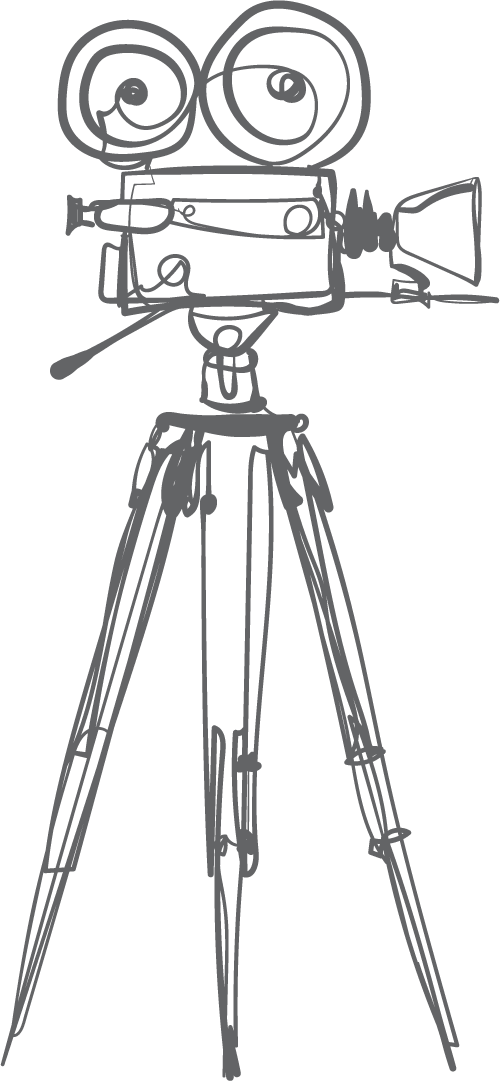
A joke is an epitaph on an emotion.
Friedrich Nietzsche
Hat flying off, overcoat billowing behind him, curly red hair blown back, the bespectacled young reporter grinned as he went about his work with a long, forward-leaning stride. Taking notes on the run as he dashed around for stories, Billy Wilder was caricatured in 1926 in a drawing for a Vienna magazine capturing the cocky, hyperactive spirit he displayed as a reporter there and, later, in Berlin, where he was called Der rasende Reporter (the Racing Reporter). Born Samuel Wilder, he went under the nickname of Billie but would change it to Billy after escaping Nazism for Hollywood and realizing that Billie was a female name in America. Wilder had a round, slyly impish face, often described as cherubic. People who knew him only from photographs supposed that meant he was elfin in stature. They did not realize he stood an inch below six feet, an imposing figure who liked to swing a cane or a walking stick. His hunched-forward posture in the drawing came because he was so peripatetic, always going somewhere in a hurry.
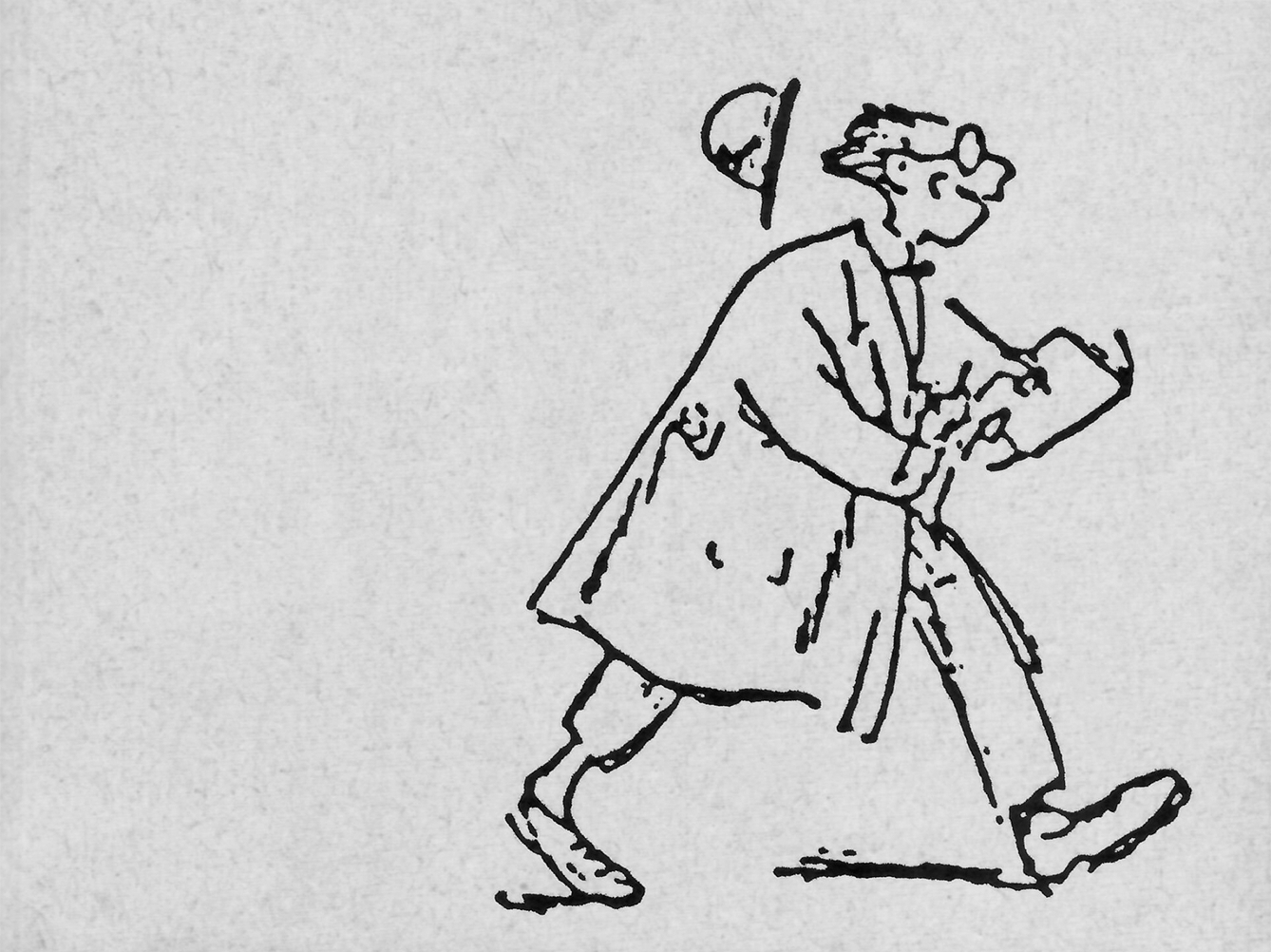
1.0 A caricature of the young Racing Reporter Billie Wilder from a February 1926 issue of Viennas Die Bhne (The Stage). Wilders Austrian biographers Andreas Hutter and Klaus Kamolz suspect he drew the portrait himself.
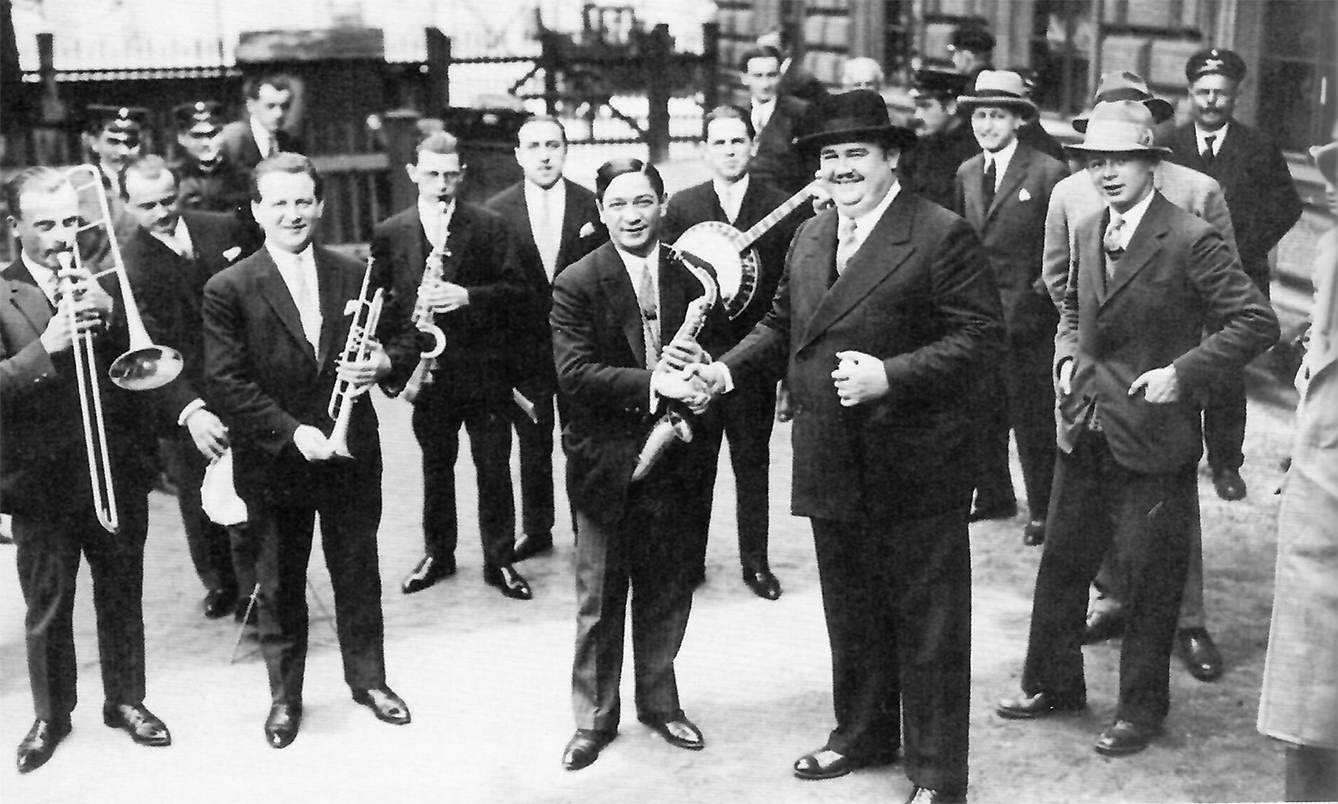
1.1 Billie Wilder (second from right) and portly American bandleader Paul Whiteman when Wilder was brought to Berlin in 1926 as a publicist for his idol, an early sign of the young reporters love for American culture.
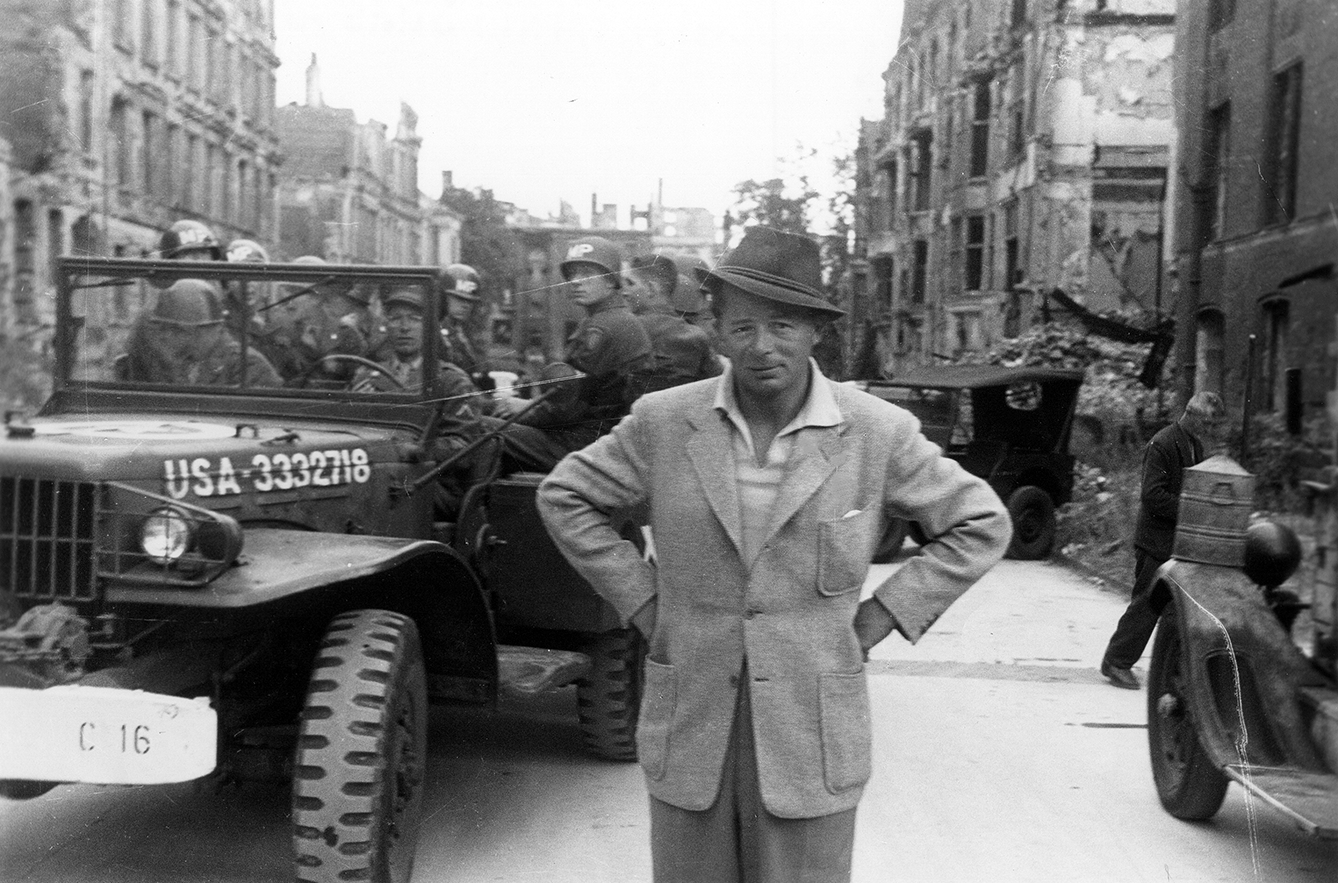
1.2 Wilder, as Billy the director, returns to the ruins of Berlin in 1947 while making his mordant romantic comedy-drama about postwar corruption, A Foreign Affair (a 1948 release). (Paramount / Photofest.)
Wilders perpetually restless nature was the result of an early life in constant motion. Much of his childhood in the Austro-Hungarian Empire was spent in trains and hotelhis father, Max, ran cafs in railroad stations before settling into managing a Krakw hoteland Billys existence encompassed no fewer than five separate moves into exile. Or six if you count his later years in internal exile as a much-honored filmmaker who eventually found himself unable to work in Hollywood. His films are replete with hotel and train settings as his characters race from place to place, attempting to find their bearings. It doesnt take Sigmund Freud (his longtime bte noire) to recognize that Wilders bustling energy and impatience were a symptom of enduring anxiety over his rootless condition, his unconscious need to keep moving in order to avoid being trapped. After his insecure upbringingeven if he professed to find it rather enjoyable to be a boy who, in his own words, never could stand stilland far more deeply after he fled Hitler in 1933 and emigrated to the United States, Wilder experienced the exiles essential feeling of never quite belonging or knowing a firm identity, always having to be ready to move again, no matter how safe you might feel at the moment.







